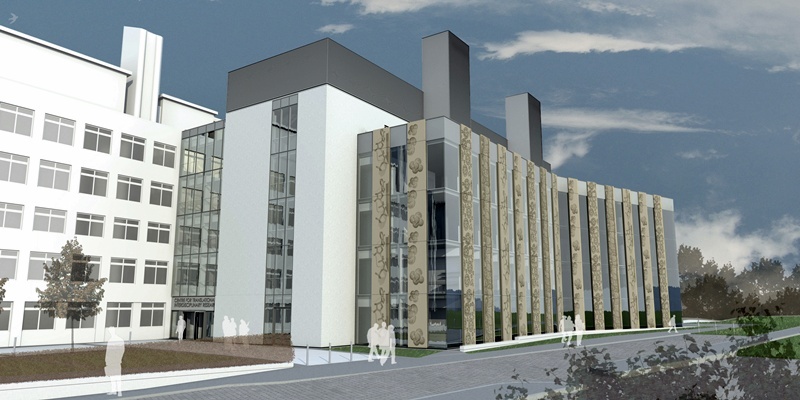Biomedical research at Dundee University has been given a £12 million boost.
The funding will pay for the completion of a new centre and add 180 research jobs to the 1000-plus scientists, students and support staff already employed in the college of life sciences.
University principal Professor Pete Downes said: ”This funding confirms the great strengths we have in biomedicine in Dundee and Scotland. It will help create world-class capability and infrastructure for interdisciplinary work bringing together basic science, drug discovery, health informatics and mathematics.
”We have tremendous expertise across these disciplines and by harnessing them and working together we can have a transformational impact in science and health. This is also, of course, a very notable boost to economic development of the life sciences sector within Scotland.”
The money has been awarded by the UK Research Partnership Investment Fund. It will be spent on the four-storey Centre for Translational and Interdisciplinary Research, which will have more than 5000 square metres of new labs and offices.
It is already backed by big names in medical research and pharmaceuticals such as the Wellcome Trust and GlaxoSmithKline, which are putting in £26m. Another £12.5m comes from the university, public sector funding and local charitable trusts.
Professor Michael Ferguson, dean of the college of life sciences, said: ”We have an excellent track record at Dundee of attracting investment from charities and business particularly the pharmaceutical industry and using it to deliver innovation and opportunity.
”I would like to pay tribute to all my colleagues and their research teams who have secured the match-funding that enabled us to obtain this UKRPIF award.”
The centre will double the size and capacity of the drug discovery unit, which looks for new medicines for conditions such as cancer, diabetes and tropical diseases.
It will also create a new facility for proteomics the study of proteins that will try to exploit the potential of the human genome project for healthcare and the development of safer drugs.
Scientists will also be bringing together expertise in a range of disciplines, such as mathematical biology, theoretical physics, data analysis and software development, to tackle problems in biology and drug discovery.
The final strand of the new centre’s work will be a ”pre-incubator” to provide help to fledgling biotech companies which will try to commercialise the university’s research.
Professor Ferguson said: ”The project provides an exciting opportunity to bring different disciplines together, allowing contributions of scientists from a number of different fields, each bringing their expertise to bear on aspects of the larger, systems-level problems relating to biology and drug discovery and drug design.”
Construction of the centre is expected to finish next autumn.
The front of the building will feature large aluminium cladding panels incorporating artworks of scientific images created by a team from the university’s Duncan of Jordanstone college of art and design.
The centre will also have a gallery for projects combining art and science.
